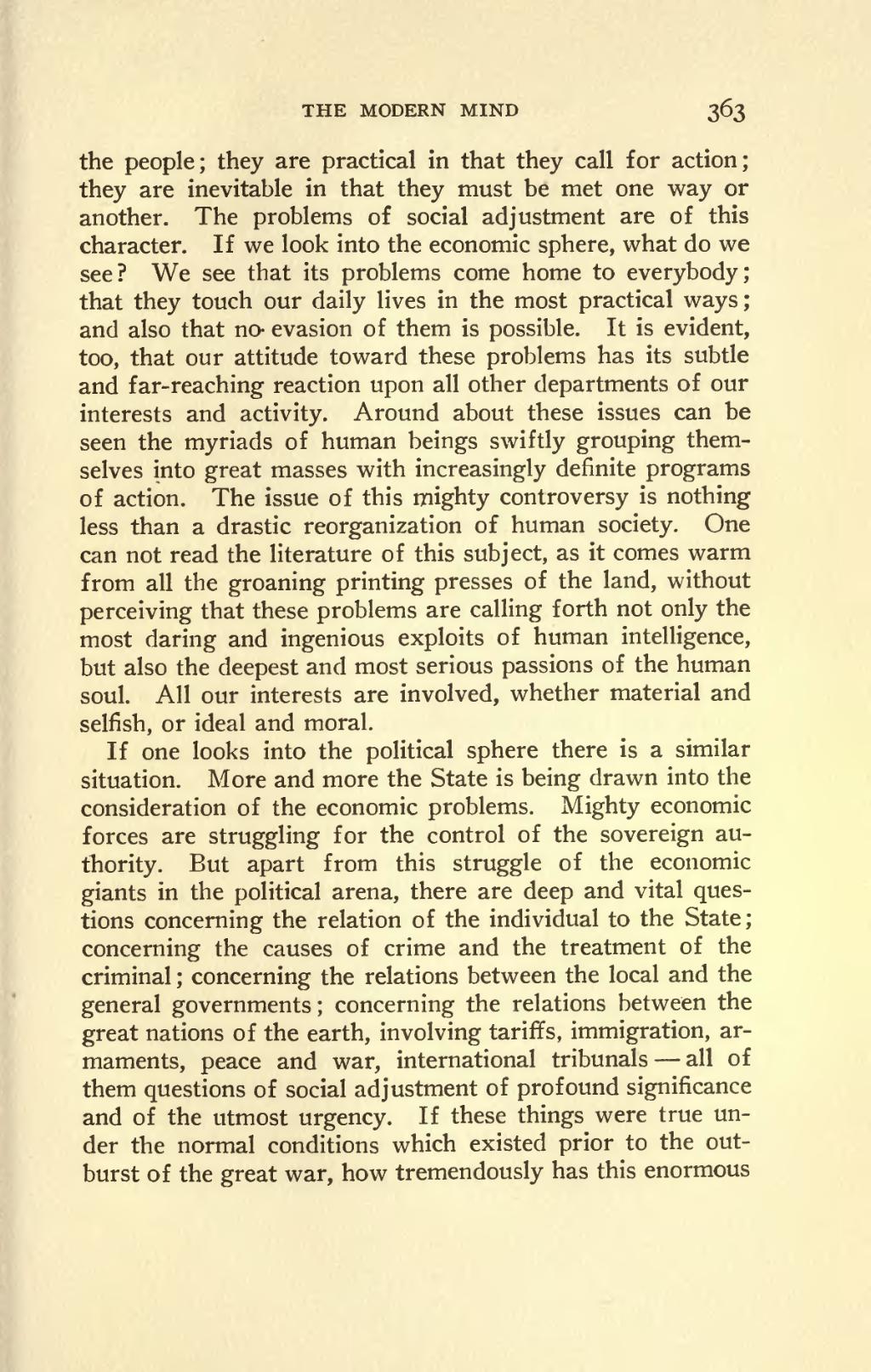THE MODERN MIND 363
the people; they are practical in that they call for action; they are inevitable in that they must be met one way or another. The problems of social adjustment are of this character. If we look into the economic sphere, what do we see? We see that its problems come home to everybody; that they touch our daily lives in the most practical ways; and also that no- evasion of them is possible. It is evident, too, that our attitude toward these problems has its subtle and far-reaching reaction upon all other departments of our interests and activity. Around about these issues can be seen the myriads of human beings swiftly grouping them selves into great masses with increasingly definite programs of action. The issue of this mighty controversy is nothing less than a drastic reorganization of human society. One can not read the literature of this subject, as it comes warm from all the groaning printing presses of the land, without perceiving that these problems are calling forth not only the most daring and ingenious exploits of human intelligence, but also the deepest and most serious passions of the human soul. All our interests are involved, whether material and selfish, or ideal and moral.
If one looks into the political sphere there is a similar situation. More and more the State is being drawn into the consideration of the economic problems. Mighty economic forces are struggling for the control of the sovereign au thority. But apart from this struggle of the economic giants in the political arena, there are deep and vital ques tions concerning the relation of the individual to the State ; concerning the causes of crime and the treatment of the criminal ; concerning the relations between the local and the general governments ; concerning the relations between the great nations of the earth, involving tariffs, immigration, ar maments, peace and war, international tribunals all of them questions of social adjustment of profound significance and of the utmost urgency. If these things were true un der the normal conditions which existed prior to the out burst of the great war, how tremendously has this enormous
�� �
